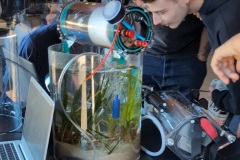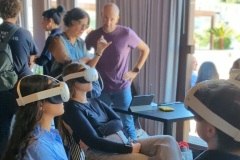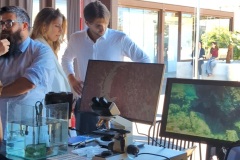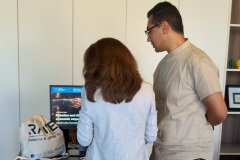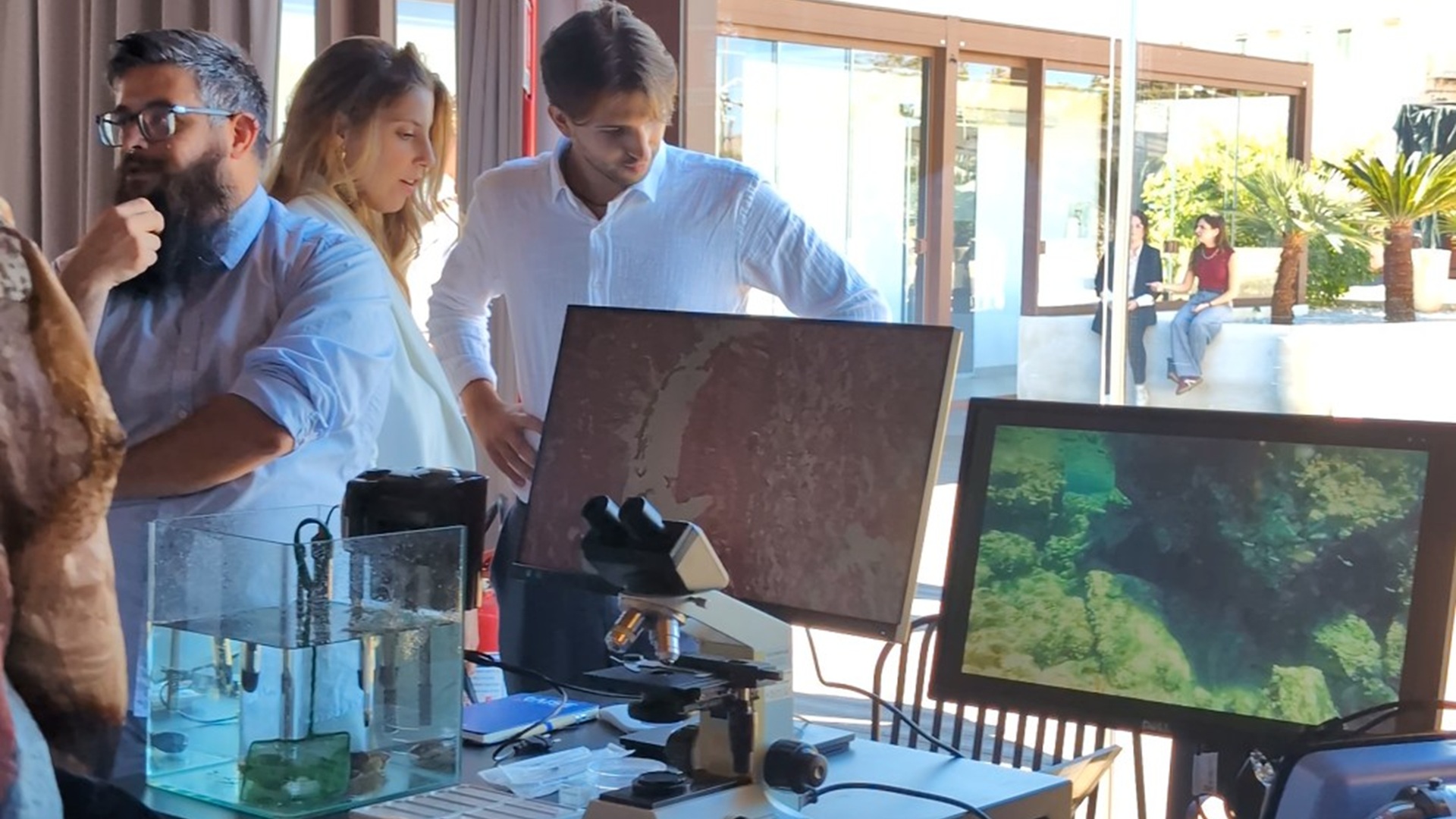
On October 8, 2025, the University of Palermo hosted the closing event of the TEC-SOS project – Sustainable Technologies for Monitoring in Marine Protected Areas of the Lower Tyrrhenian Sea – an initiative within the RAISE innovation ecosystem (Robotics and AI for Socio-Economic Empowerment).
The project brought together scientific research, technology, and civic participation to develop and test advanced solutions for monitoring and protecting marine ecosystems.
The event took place at the Department of Earth and Marine Sciences (DiSTeM) and gathered researchers, students, professionals, institutional representatives, and citizens. Rector Massimo Midiri, Vice-Rector for Research Andrea Pace, and DiSTeM Director Attilio Sulli opened the meeting with institutional greetings, highlighting the strategic importance of initiatives that link technological innovation with environmental sustainability.
During the morning session, participants attended presentations of the project’s results and a roundtable discussion dedicated to RAISE’s key action lines, which promote robotics and artificial intelligence in service of society and the environment. Elisa Costa (CNR-IAS, Genoa) outlined the role of Spoke 3 within the RAISE ecosystem, focused on sustainable technologies for marine protection. The discussion then featured contributions from Gianluca Sarà, Attilio Sulli, Maria Giovanna Parisi – scientific coordinator of the TEC-SOS project – Adriano Fagiolini, Maria Cristina Mangano, Maria Maisano, Davide Bruno, and Valeria Pizziol, who shared insights, outcomes, and research perspectives.
“With TEC-SOS, we wanted to build a bridge between science and local communities, putting technology at the service of the sea and of those who live it every day,” said Prof. Maria Giovanna Parisi. “Innovation is not an end in itself: it helps us better understand ecosystems, protect them, and increase our collective awareness of the natural heritage surrounding us.”
Through an integrated approach, the TEC-SOS project tested next-generation sensors in real marine environments to measure physical, chemical, and biological parameters in Marine Protected Areas of the Lower Tyrrhenian Sea. The activities also involved divers and local communities in citizen science initiatives aimed at collecting georeferenced data on non-native species, mortality events, marine litter accumulation, and ghost nets.
The combination of field observations and scientific measurements provided new insights into the causes and dynamics of complex ecological phenomena, supporting more effective management and conservation strategies.
During the event, participants visited the laboratories that contributed to the project, including the MIB Lab of Marine Immunobiology, the e-LAB of Marine Ecology, the Geomorphology and Applied Geology Lab, the Electronics and Robotics Engineering Lab, and the Ecotoxicology Lab at the University of Messina. The Altamarea Diving Center and the Ustica Island Marine Protected Area presented real-world applications of the developed technologies.
Through practical demonstrations and interactive activities, the event turned research into a direct experience, offering the public the chance to explore tools, methods, and concrete applications for marine protection.
With TEC-SOS, technological innovation found in the Mediterranean a natural laboratory where science, education, and community came together to build a more sustainable future.


